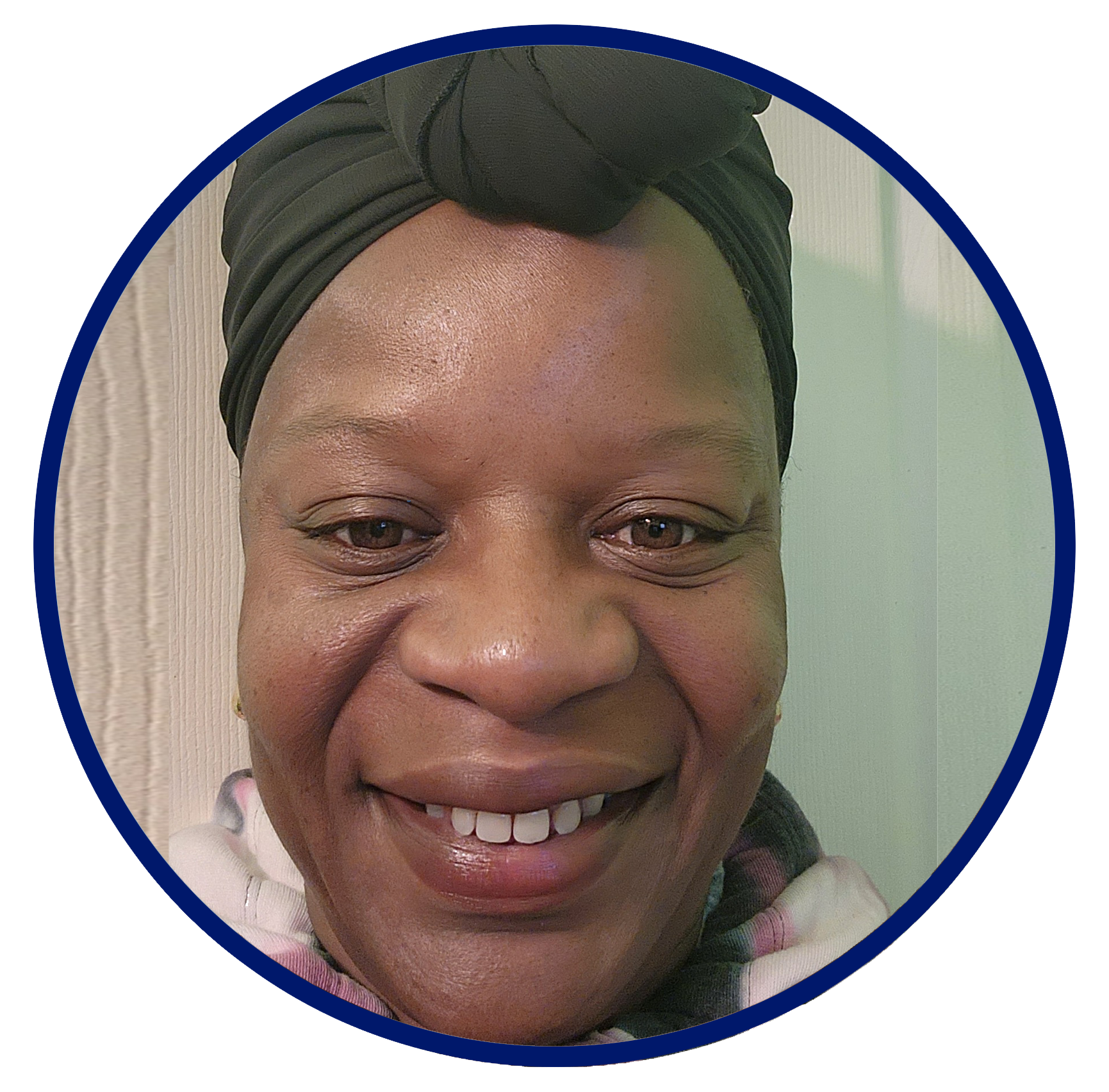Posted on April 12, 2023
What inspired you to become a community doula?
I have always been a nurturer. I'm the oldest of five kids. I grew up in the Hayes Homes in Newark in the ‘70s and ‘80s. It was kind of rough growing up back during those days and I would watch over my siblings from early on, like at 6- or 7-years-old. My grandma always told me, “You’ve got to look out for them. You're a second mom.”
Fast forward to 2017, my youngest daughter was about to graduate high school and I thought, “I'm not going to have anybody home. What am I going to do with myself?” I went to a yoga class and a young lady came and told us about the opportunity to work as a doula in New Jersey. And that’s how it started. I felt I could leave a legacy for myself by supporting moms because it's always been evident that not enough information or resources were readily available in our community.
What was the process of becoming a doula like?
I applied for the training and went to an info session. That’s when I learned about the statistics of maternal health and about infant mortality in New Jersey. I saw the difference between Black and Brown birth outcomes versus white statistics. And I'm like, “What? Really? Why?”
The training was a really impactful eight days, eight days with other women sharing their own birth stories and life experiences and all of us building up the passion to support other women. It truly was one of the most amazing eight days I've had in a long, long, time. I felt inspired and empowered to serve as a doula.
Can you tell us about your first client?
It was a beautiful experience. We bonded even outside of the regular visit. We would talk on the phone and I would check on her. I sort of fill the gap for mothers that don't have that support system readily available. The mom was 19 and she was on her own. I was able to help her advocate for what she wanted - a vaginal birth experience without an epidural.
How was the process to get credentialed as a doula?
My earliest challenges of becoming one of the first New Jersey Medicaid credentialed community doula providers back in 2021 was when I began the process of becoming credentialed with each of the five managed care organizations (MCOs) - WellCare, United Healthcare (UHC), Amerigroup, Aetna, and Horizon NJ Health. In order to contract with the organizations and charge New Jersey Medicaid for doula services, one must first sign a contract with each MCO.
It was a very slow process - several of the MCOs wanted doulas to complete the same applications required for medical providers, even if the information asked was not relevant, in addition to listing home addresses as public provider addresses. This alone was concerning.
Overall, it was a very daunting process. In fact, there have been a number of clients that I have supported that I have not been compensated for. Sometimes, dealing with the billing stuff, it takes time.
That is high on my priority list to get a better understanding of navigating the medical billing system. I would like to see a little bit more uniformity for the credentialing process with the field.
What has been your experience working with medical providers?
It’s been overall positive, but sometimes I’m seen as more of a friend or visitor than a trained healthcare professional. Being treated as a visitor versus being treated as staff, I think really speaks to, unfortunately, the underappreciated role of the doula. This is the case sometimes in the hospital setting but more specifically at my employer. Recently, I've been asked to introduce myself to the providers (@ my employer) when I've been employed for a year and a half. I feel administration can do more to facilitate the relationship with doulas and provide the environment where doulas feel respected, not just existing for the sake of satisfying grant responsibilities.
Where are you seeing that there are opportunities for the system to be improved on?
Healthcare systems, healthcare providers, and Insurance providers can facilitate better relationships with doulas by becoming knowledgeable of doula care. It's still a challenge for my employer to understand me being chosen to be a person's doula is different from being assigned to be someone's doula. Also, the PRA (perinatal risk assessment) utilization/access should be more transparent to patients and even doulas. I understand security levels and information privacy have to be considered, but I feel it's under-utilized.
What do you think are ways that we could bridge gaps to make sure every expecting parent has the opportunity to have the support of a doula, should they want one?
Education. If you have insurance, you should know if doula services are covered and there should be information about what a doula is. Once the insurance carrier knows that a member is pregnant, they can send them a letter or email. “Congratulations, you're pregnant. And these are all of the services that you are entitled to.” Some MCOs offer more than just doula support, some offer breastfeeding (lactation) support, supplies for mothers and babies, and a Care Coordinator to check in with them "often".
Information and resources are something that if you don't know about it, you'll never benefit from.



